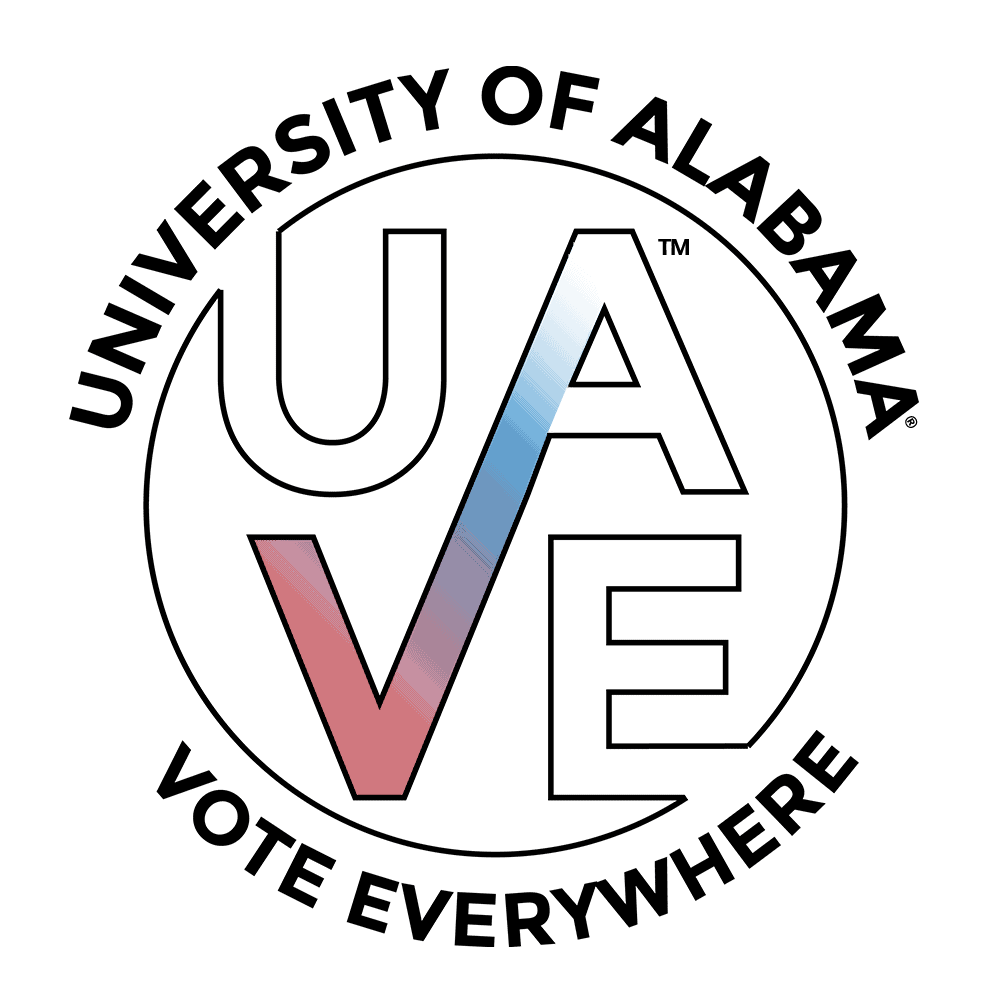Editor’s note: Tara Jones is an ambassador and executive board member of UA Vote Everywhere, a campus initiative of the Andrew Goodman Foundation that aims to register college voters, advocate for voting rights and increase the accessibility of voting on and off campus. This piece was written in collaboration with other Vote Everywhere members to highlight Alabama’s need for early voting.
Every year on Oct. 26, voting rights organizations nationwide celebrate Vote Early Day, a civic holiday dedicated to providing voters with the information and resources necessary to cast their ballot before Election Day.
With the 2024 presidential primaries quickly approaching, it is more important than ever for students at The University of Alabama to know all the different ways they can vote.
Recent data strongly suggests that student voters can make a big impact in 2024. The Brookings Institution, a nonpartisan, nonprofit research organization, estimates that by the 2024 general election, voters under 45 years of age will make up almost half of the electorate. However, despite this potential political power, data from past elections indicates that many youth voters will not cast a ballot.
According to the Center for Information & Research on Civic Learning and Engagement at Tufts University, only 23% of potential voters aged 18-24 nationwide voted in the 2022 midterm elections. In Alabama, youth voter participation was one of the lowest in the country at 14.7%.
When registered voters of all ages across the U.S. were asked why they chose not to participate in the 2022 midterms, over a quarter claimed that they were “too busy” or had a “conflicting work or school schedule.”
Unfortunately, many potential voters do struggle to make it to a polling location on Election Day, a problem felt most by college students and low-income Americans — thus, highlighting the need for alternative voting methods.
In recognition of this very common barrier to voting, 47 U.S. States and the District of Columbia have some type of early in-person voting in place. Only three states — Alabama, Mississippi and New Hampshire — do not have this kind of system.
Some may argue that an absentee in-person option like that offered in Mississippi should qualify as a type of early voting. However, it’s important to note states have varying definitions of early voting. For example, Mississippi’s process allows only voters with an absentee ballot excuse to cast their ballot early in person.
This conditional system, unlike true early in-person programs, does little to mitigate the burdens college voters face when applying for and submitting traditional absentee mail-in ballots. Therefore, Mississippi does not offer an effective form of early voting for its student voters.
In contrast, states that do have these effective early voting systems in place make elections more democratic, because they give every potential voter a greater ability to have their voice heard. States like Alabama that have failed to institute such a system are suppressing votes, particularly youth votes.
According to a recent U.S. Census report, 47.1% — almost half — of all voters in the 2022 midterm elections voted early. Data from Tufts University’s National Study of Learning, Voting and Engagement, which details student registration, engagement and voter rates, supports this finding and indicates that in both 2018 and 2020, very few UA students were able to cast their ballot in person on Election Day. Instead, most students either had to vote early in the states that allowed it or vote by absentee ballot.
Research conducted in 2020 by Dr. Enrijeta Shino, an assistant professor in political science at The University of Alabama, found that when certain Florida counties used on-campus early polling locations, more youth voters were likely to vote, “because information and transportation barriers were lowered, making the voting process more convenient.”
If Alabama followed a similar protocol, the state’s college-aged voters would no longer have to rely on the speed of the U.S. Postal Service to have their absentee ballot counted or have to risk skipping classes in order to vote in person. Instead, by implementing an early in-person voting system, the state would give its students some much-needed flexibility, allowing more of us to cast our ballots.
In order to have results that truly reflect the will of its citizens, an election needs to have as many voters casting their ballots as possible. To that end, Alabama must implement early voting for all its elections — federal, state and local. Student voices matter, and Alabama’s election policies should recognize that.









